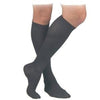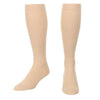Why is foot care so important for diabetics?

Table Of Contents:
Living with diabetes requires careful attention to various aspects of health, and one area that deserves special focus is foot care. Diabetes can have a significant impact on foot health, increasing the risk of complications such as neuropathy, poor circulation, foot ulcers, and infections. Therefore, prioritizing foot care is crucial for individuals with diabetes. In this article, we will delve into the reasons why foot care is so important for diabetics, explore the foot complications associated with diabetes, discuss key foot care practices, highlight the significance of professional foot care, and emphasize the role of education and awareness in promoting diabetic foot health.
Understanding the Foot Complications of Diabetes
Diabetes can lead to several foot complications due to two main factors: diabetic neuropathy and poor circulation. Diabetic neuropathy is nerve damage that can result in a loss of sensation in the feet. This means that individuals with diabetes may not feel pain, heat, or cold as acutely as those without diabetes, making them susceptible to injuries that go unnoticed. Poor circulation, a common issue among diabetics, hampers the body's ability to deliver nutrients and oxygen to the feet, impairing wound healing and increasing the risk of infections.
The Role of Foot Care in Diabetes Management
Proactive foot care plays a crucial role in managing diabetes and preventing foot complications. By practicing regular foot care, individuals with diabetes can minimize the risk of developing ulcers, infections, and other serious foot issues. Proper foot care also contributes to overall well-being and quality of life.
Key Foot Care Practices for Individuals with Diabetes
To maintain optimal foot health, individuals with diabetes should adhere to key foot care practices:
- Daily foot inspection and self-examination: Regularly inspecting the feet can help detect any abnormalities or signs of potential issues. This includes checking for cuts, sores, blisters, redness, or swelling.
- Proper cleaning and moisturizing techniques: Keeping the feet clean and moisturized helps prevent dryness and cracking. However, it's important to avoid applying moisturizer between the toes to prevent excessive moisture, which can lead to fungal infections.
- Nail care and the importance of professional foot care services: Trimming toenails properly and seeking professional foot care when necessary can help prevent ingrown nails, infections, and other complications.
- Managing calluses and corns safely: Individuals with diabetes should avoid self-treatment of calluses and corns, as improper removal can lead to wounds and infections. Seeking professional podiatric care is recommended.
- Selecting appropriate footwear and the benefits of diabetic socks: Wearing well-fitting, supportive shoes is essential for individuals with diabetes. Diabetic socks, designed with features like non-constricting tops, moisture-wicking properties, and cushioned soles, can provide additional comfort and protection.
Preventing Foot Ulcers and Infections
Preventing foot ulcers and infections is a primary goal of diabetic foot care. Several strategies can help individuals with diabetes protect their feet and minimize the risk of complications:
- Regular inspection and prompt treatment of cuts or wounds: Any cuts or wounds should be promptly cleaned, treated, and monitored. Even minor injuries can escalate quickly in individuals with diabetes.
- Wearing protective footwear in high-risk environments: Proper footwear, including closed-toe shoes and protective footwear when necessary (e.g., steel-toe shoes for certain work environments), can safeguard the feet from injuries.
- Managing foot moisture and using antifungal treatments: Keeping the feet dry and using antifungal treatments can help prevent fungal infections, which can be challenging to treat in individuals with diabetes.
Seeking Professional Foot Care for Individuals with Diabetes
Professional foot care is vital for individuals with diabetes, especially those at higher risk of complications. Podiatrists and foot care specialists can provide expert guidance, conduct regular foot examinations, and address any foot issues promptly. Regular screenings and preventive care can significantly reduce the likelihood of developing serious foot problems.
Education and Awareness for Diabetic Foot Care
Education and awareness are fundamental in promoting foot care for individuals with diabetes. Providing comprehensive information about foot care practices, the risks associated with diabetes, and preventive measures is essential. Healthcare providers, diabetes educators, and community organizations play a crucial role in disseminating this knowledge and raising awareness about the importance of foot care.
Conclusion
Foot care is of paramount importance for individuals with diabetes. By understanding the foot complications associated with diabetes, practicing key foot care measures, seeking professional foot care services, and promoting education and awareness, individuals with diabetes can safeguard their foot health and reduce the risk of complications. Prioritizing foot care as part of diabetes management contributes to overall well-being and enhances the quality of life for individuals living with this chronic condition.
Best Sellers
-
Men's Cotton Diabetic Crew Socks (6 Pair)
![]()
- Regular price
- $39.99
- Sale price
- $39.99
- Regular price
-
$79.95 - Unit price
- per
Sold out





-
Men's Ultra-Soft Upper Calf Diabetic Socks (4 Pair)
![]()
- Regular price
- from $39.99
- Sale price
- from $39.99
- Regular price
-
$79.95 - Unit price
- per
Sold out


-
Men's Cotton Diabetic Ankle Socks (6 Pair)
![]()
- Regular price
- $39.99
- Sale price
- $39.99
- Regular price
-
$69.95 - Unit price
- per
Sold out


-
Women's Cotton Diabetic Crew Socks (6 Pair)
![]()
- Regular price
- $39.99
- Sale price
- $39.99
- Regular price
-
$79.95 - Unit price
- per
Sold out




-
Women's Cotton Diabetic Ankle Socks (6 Pair)
![]()
- Regular price
- $39.99
- Sale price
- $39.99
- Regular price
-
$79.95 - Unit price
- per
Sold out


-
Men's Over The Calf Compression Stocking Socks (1 Pair)
![]()
- Regular price
- from $19.99
- Sale price
- from $19.99
- Regular price
-
$31.95 - Unit price
- per
Sold out





-
Women's Ultra-Soft Upper Calf Diabetic Socks (4 Pair)
![]()
- Regular price
- from $39.99
- Sale price
- from $39.99
- Regular price
-
$79.95 - Unit price
- per
Sold out


-
DSC Hemp Cream For Neuropathy Aches & Nerve Pain (Peppermint)
![DSC Rub]()
- Regular price
- from $39.99
- Sale price
- from $39.99
- Regular price
-
$59.95 - Unit price
- per
Sold out









